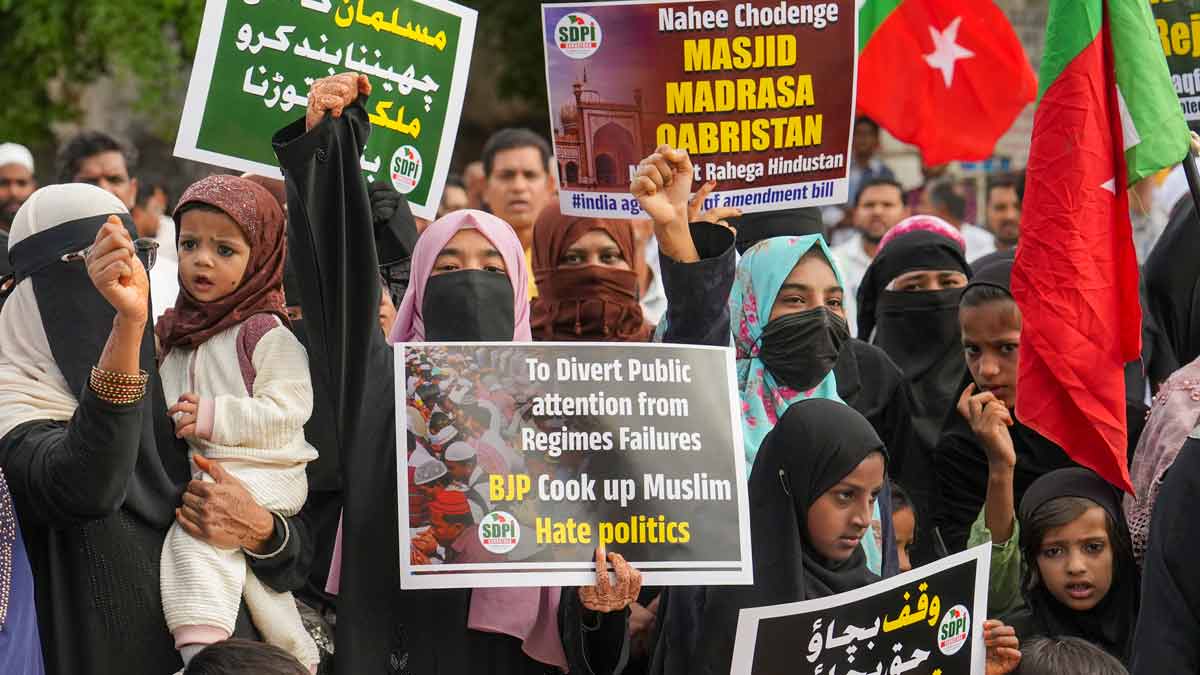Fourth petition filed in Supreme Court against Waqf bill as political storm rages
 Members of Social Democratic Party of India raise slogans during a protest against the Waqf (Amendment) Bill in Bengaluru | PTI
Members of Social Democratic Party of India raise slogans during a protest against the Waqf (Amendment) Bill in Bengaluru | PTI
After Congress MP Mohammad Jawed and AIMIM president Asaduddin Owaisi, an Aam Aadmi Party legislator, moved the Supreme Court against the controversial Waqf (Amendment) Bill 2025 on Saturday.
Amanatullah Khan, who represents the Okhla constituency, contented in his petition that the bill curtails the religious and cultural autonomy of Muslims, enables arbitrary executive interference and undermines minority rights to manage their religious and charitable institutions.
Khan’s plea further alleged that the new amendments would affect the core aspects of Waqf law, including the definition, creation, registration, governance, dispute resolution, and alienation of waqf properties.
He demanded that the bill be declared "unconstitutional and being violative of Articles 14, 15, 21, 25, 26, 29, 30 and 300-A of the Constitution".
Congress MP Mohammad Jawed and AIMIM president Asaduddin Owaisi filed similar petitions in the apex court on Friday.
Jawed alleged that the bill undermines the religious autonomy of the Muslim community as it imposes “arbitrary restrictions” on Waqf properties.
"Such a limitation is unfounded in Islamic law, custom or precedent and infringes upon the fundamental right to profess and practice religion under Article 25," he said.
The Congress MP, who represents Kishanganj in Bihar, was also a member of the Joint Parliamentary Committee (JPC) on the Waqf bill.
Owaisi, in his petition, contended that the bill would amount to hostile discrimination against Muslims and a violation of the Constitution.
"Appointing non-Muslims on the Central Waqf Council and the State Waqf Boards disturbs this delicate constitutional balance and tilts it to the detriment of the right of Muslims as a religious group to remain in control of their Waqf properties," he said.
Meanwhile, the Association for Protection of Civil Rights, an NGO, has also filed a petition in the Supreme Court opposing the bill.
The bill passed by both Lok Sabha and Rajya Sabha after heated debates now awaits President Droupadi Murmu's assent to become an Act.
Though the government argues that the bill would ensure proper representation of the marginalised section in the Waqf board and prevent misuse of religious properties, its provisions have triggered widespread anxiety among Muslims.
Those opposing the bill claim that the provisions would dilute the religious autonomy and constitutional protections of waqf institutions.
India